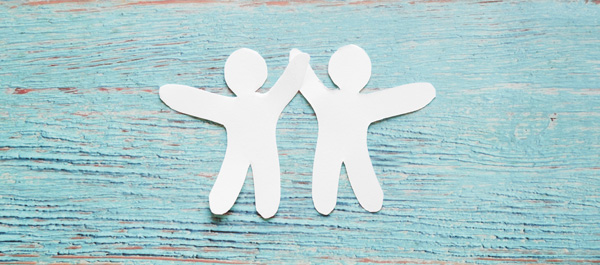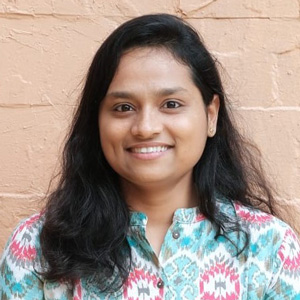Survivor-driven collaboration: Lessons and reflections on co-producing evidence in Bangladesh
Authors: Geetanjali Jha and Dr. Monisha Lakshminarayanan
Introduction
Researchers from Athena Infonomics reflect on the survivor-driven collaboration, drawing from a study commissioned by the US Department of State on human trafficking in Bangladesh. The study investigated the complex landscape of human trafficking, marked by fragmented data systems, weak coordination among stakeholders and uneven access to survivor support. It mapped key stakeholders, policies and interventions, addressing prevention, protection and prosecution. It also examined how national systems, community actors and survivor-led initiatives responded to trafficking. Lastly, the study identified critical gaps that hindered a coordinated, survivor-centred and evidence-informed response.
Conducted against the backdrop of stigma and political unrest, the study highlighted that collaboration was not merely a principle, but the backbone of the research process. It shaped the design, sustained fieldwork in times of crisis, helped navigate layered challenges and ensured that the evidence generated was both high quality and positioned for use.
Because evidence only has meaning when it carries the voices and struggles of those who live it – and when it can push for system-level change – this blog captures a conversation between two Athena researchers, Dr Monisha Lakshminarayanan and Geetanjali Jha, reflecting on what collaboration truly meant in practice.
A conversation on co-producing evidence in Bangladesh
Monisha: Right from the outset, we were clear that this study needed to be collaborative and survivor-centric. Could you share how we started building collaboration into the study design from day one?
Geetanjali: This idea was first conceptualised by our senior colleague, Dr Sudhanshu Joshi, Partner and Director at Athena Infonomics. From the design stage itself, the role of survivors was central. As we began developing the research tools and planning the study, we reached out to survivor networks who collaborated with us from the outset. They reviewed early drafts of the tools, shared feedback on both content and format and encouraged us to move away from rigid questionnaires. Instead, they pushed for approaches that felt more culturally relevant, such as using storytelling and incorporating everyday scenarios.
With the support of our regional experts, we identified survivor-led grassroots organisations and networks. These organisations were anchored by survivor activists and leaders. The original thinking was to collaborate with these leaders to facilitate survivor interactions, but as the fieldwork unfolded, their role grew. What began as a survivor-centric process soon became survivor-driven.
Collaboration, for us, was never an afterthought. It meant reimagining what ‘high-quality evidence’ should look like and, more importantly, who has the right to shape it. At first, that meant the meaningful inclusion of survivors. However, as the project unfolded, it became more about decentralised leadership and shared ownership of the evidence. This effort was also supported by a wider set of actors – NGOs, government stakeholders and regional experts – who helped open doors, provide guidance and ensure cultural relevance.

Geetanjali: Our study coincided with a period of intense political unrest in Bangladesh – student protests, shutdowns, even internet blackouts. That environment changed everything about how we worked in the field. Monisha, could you describe what it was like during that time and how collaboration became the lifeline that kept the study moving?
Monisha: As our study coincided with waves of political unrest, everything on the ground shifted. Dhaka slowed to a halt – interviews were cancelled, streets were blocked and internet blackouts disrupted communication. Sitting with a carefully laid-out research plan, it often felt as though the study could unravel at any moment. This was when collaboration became not just important, but crucial. Survivor-facilitators, already trusted in their own communities, stepped in to carry the work forward. They created safe spaces and kept survivors engaged. While we were stranded, survivor-facilitators anchored interactions in their districts. In those moments, survivor networks emerged as the backbone of ethical and effective evidence generation.
Monisha: You were closely coordinating with the field team during that period. How did collaboration sustain the work despite all those disruptions?
Geetanjali: Local survivor-facilitators, with the support of our regional field staff, carried on peer interviews in field locations. When our own hands were tied by the shutdown, survivor-led activists took the lead. They collaborated with NGOs, with survivors in their own networks and with regional experts to move the study forward. And importantly, they did so without compromising core research principles: every interview followed the agreed guide, informed consent was always sought and protocols to minimise the risk of re-traumatisation were applied.
At the same time, we worked with government stakeholders to pause sensitive interviews when safety risks escalated and then to resume once conditions stabilised. Surprisingly, those pauses built trust. When we re-engaged, government and non-government stakeholders became more candid about their fears, resource constraints and the challenges they faced. The pause allowed us to rebuild stronger working relationships, based on openness and trust. For me, the lesson was clear: decentralisation, trust and shared responsibility can keep research going even in a crisis.
Geetanjali: But collaboration is never easy. It takes trust, resources and constant negotiation. What challenges stand out to you from working with survivor groups?
Monisha: Stigma was a huge barrier. Some survivors were initially reluctant to be part of group discussions for fear of being identified. In response, survivor leaders adapted by shifting to one-on-one interviews, creating safer spaces for participation.
Logistics were another challenge. Survivor-led organisations often worked under resource constraints. Reaching border districts during unrest demanded careful negotiation and deep trust. Yet navigating these hurdles together ultimately highlighted the strength and resilience of survivor leaders and the organisations anchoring this work. Their ability to adapt and persist under such difficult circumstances kept the collaboration going.
Monisha: We’ve seen collaboration support us in design, during disruptions and even in navigating challenges. But it wasn’t static – it had to change as the study progressed. How did collaboration evolve over time?
Geetanjali: In the beginning, we focused on adapting the tools – moving from structured questionnaires to storytelling formats. But as political instability deepened, decentralising decision-making became essential. Survivor-facilitators stepped in to lead interviews while we supported them virtually. That shift handed real ownership to local actors and made the study resilient.
At the same time, we ensured the process upheld both ethics and data integrity – using agreed consent processes and collaborative reviews of transcripts – so that survivors’ leadership was strengthened rather than questioned.
Geetanjali: Collaboration wasn’t only external. Internally, as a team, we also had to adapt. What stands out for you about how collaboration supported us inside Athena?
Monisha: It meant constant recalibration. We split tasks, made space for regular debriefs and checked in on each other’s wellbeing – small gestures, but ones that made a real difference. And we weren’t alone. We were sustained by the support of our organisation, Athena Infonomics and the wider research community. Colleagues stepped in with technical backstopping, advice and encouragement. It reminded us that research is never an individual pursuit – collaboration sustains not just the project, but the people working on it.
Monisha: Collaboration shapes not only how evidence is generated but also how it is received. What are your thoughts on this?
Geetanjali: I agree. Collaboration creates collective ownership. In this study, survivors shaped the tools and later anchored the fieldwork. NGOs pressed us to address overlooked vulnerabilities. Government actors helped us frame the findings in ways that reflected systemic realities. Regional experts kept us grounded in the local context. Because so many actors contributed, the evidence does not belong to any one of us – it is shared and that sense of collective leadership gives it strength.
Survivors can use the findings to amplify their voices, NGOs to strengthen advocacy and government partners to reflect and act on systemic gaps. At this stage, we are moving into the uptake phase, so the real test lies ahead. My hope is that the evidence we built together will travel further precisely because it carries the imprint of everyone who shaped it.
Key takeaways
- Making collaboration flexible and adaptive: Survivors were not just consulted but invited to shape the study – guiding the design, revising tools and choosing storytelling over rigid questionnaires. We learned that this early openness created flexible feedback loops, as collaboration is built on relationships, not just research plans and protocols.
- Developing trustworthy collaborations when circumstances shift: During political unrest and uncertainty, survivor-facilitators became the lifeline of the study. Their local trust and leadership kept conversations within communities safe and active, allowing work to continue safely and ethically when formal systems paused. Respecting survivor agency and decentralising decision-making strengthened both the quality and integrity of the research.
- Respecting survivor agency and stakeholder limitations: Collaboration meant meeting people where they were – amid fear, stigma and limited resources. When fieldwork was disrupted, survivor-facilitators stepped forward to lead with care and integrity. At every step, we upheld ethics, consent and trauma sensitivity while accommodating the different capacities and constraints of all stakeholders. By respecting survivor agency and stakeholder realities alike, collaboration stayed grounded – proving that resilience is often collective.
- Nurturing care within and beyond the team: Collaboration was not only external; it was within the team too. Emotional check-ins, sharing worries and supporting each other during the period of unrest created a culture of care and empathy within the internal team. The same compassion extended to survivor-facilitators and stakeholders, reminding everyone that ethical research is sustained by trust and human connection. It reminded us that care for people is as vital as care for data.
- Sharing ownership to strengthen the evidence: The findings belong to everyone who shaped them – survivors, NGOs, government partners, legal practitioners and researchers. Because they carry lived experiences, the evidence feels alive, rooted in trust and capable of inspiring collective reflection and change.
To link to this article - DOI: https://doi.org/10.70253/TJJE9865
Disclaimer
The views expressed in this World EBHC Day Blog, as well as any errors or omissions, are the sole responsibility of the author and do not represent the views of the World EBHC Day Steering Committee, Official Partners or Sponsors; nor does it imply endorsement by the aforementioned parties.
